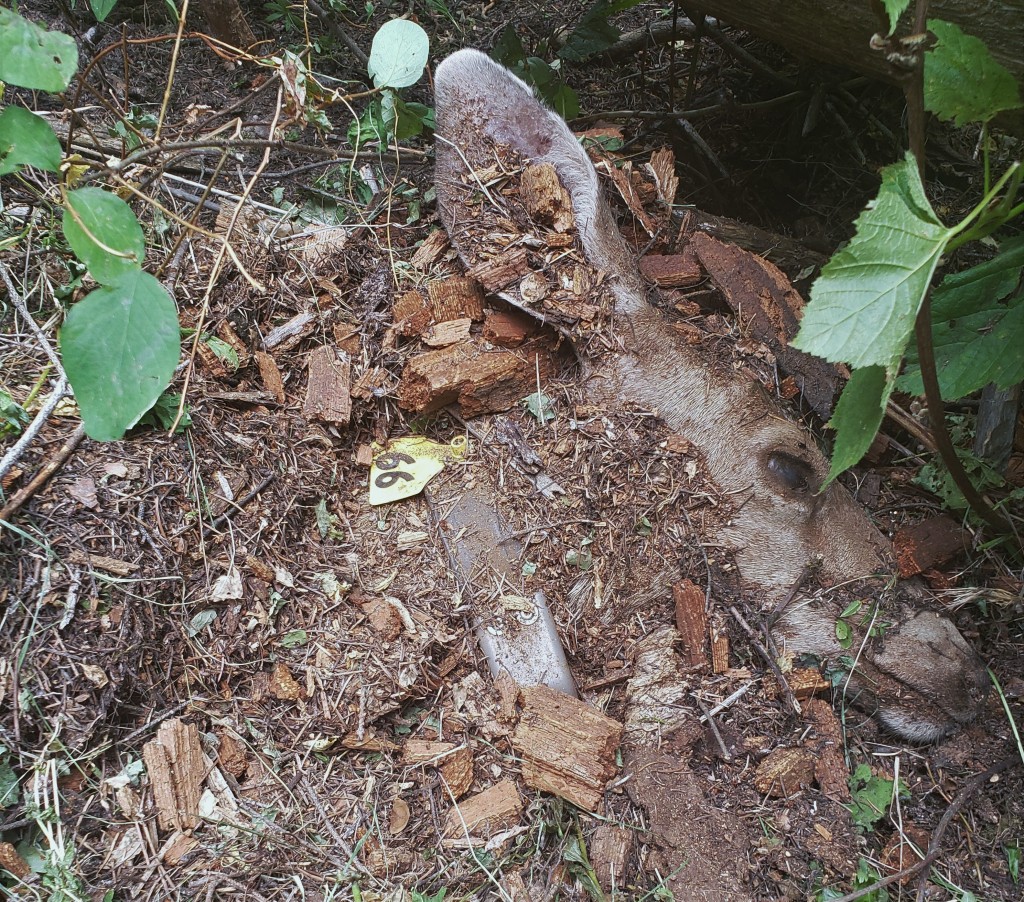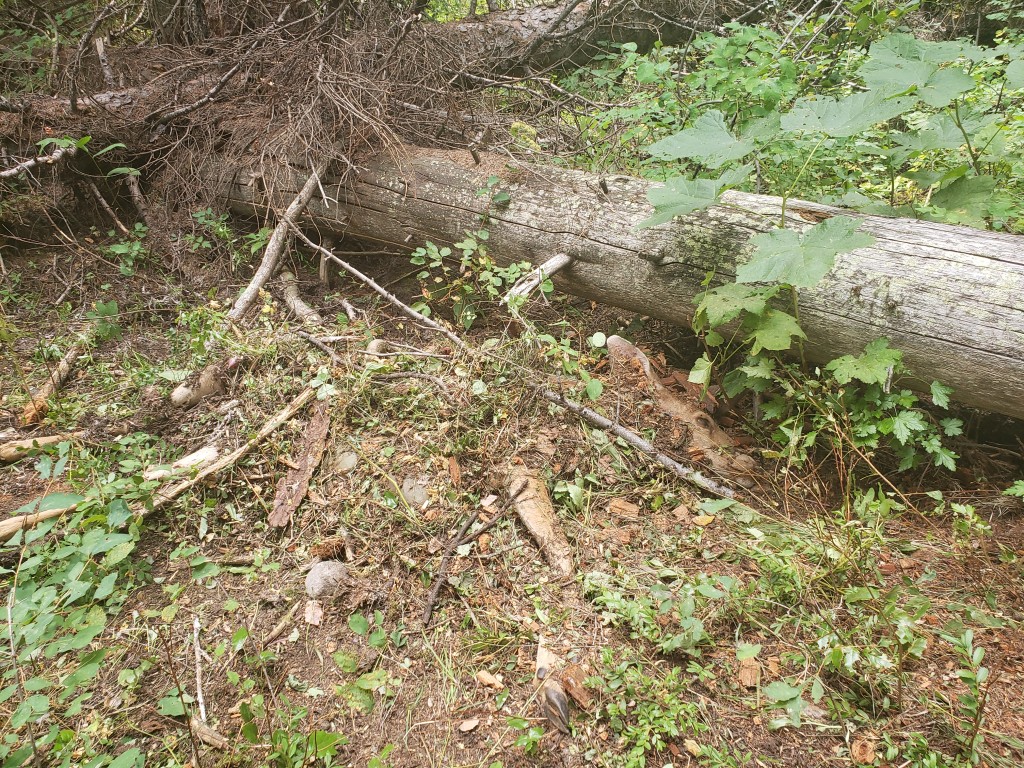Material provided by Siobhan Darlington and Chloe Wright
As leader of the Southern B.C. Cougar Project, Siobhan Darlington (a PhD student at the University of British Columbia – Okanagan) made this video showing the movements of a collared Southern Interior mule deer and a collared cougar – at the end the cougar kills the deer. Siobhan then investigated the mortality site. The photos she took give us an idea of what researchers and volunteers may encounter when investigating a deer mortality due to cougar.
The deer was collared on January 26, 2019 as an adult (somewhere between 4-9 years old) and weighed 63.5kg at capture. Researchers observed her migrate about 50 kilometres between her winter range (near the Marron Valley, north of Hwy 3A) to her summer range (Princeton-Summerland Road). She died on August 28, 2020, after completing 1.5 full migrations.
The cougar is a 7-year-old female who was collared in January 2020 in the West Okanagan. She raised 3 subadults in 2020, two of which were also collared on the cougar project and were likely with their mom at the time of this kill in August 2020. The subadults dispersed from their mother in September. Coincidentally, a camera on the SIM Deer grid picked up a picture of this cat and her subadults in July 2020.
The Southern B.C. Cougar Project (bccougarproject.weebly.com) aims to address key knowledge gaps on cougar ecology in British Columbia’s Southern Interior. This project is led by Ph.D. student Siobhan Darlington supervised by Dr. Adam Ford and Dr. Karen Hodges at UBCO and wildlife biologists T.J. Gooliaff and Patrick Stent with the Ministry of Forests, Lands, Natural Resource Operations and Rural Development.
The objectives of the study include: 1) analyzing cougar kill rates and diet composition where mule deer and bighorn sheep are in decline; 2) quantifying cougar population response to hunter harvest and; 3) analyzing individual cougar response to land-use change from forestry and wildfire.
To date, the team has GPS-collared 26 adult cougars, ear-tagged 5 kittens, and has investigated 650 GPS cluster sites to collect predation data across three study areas (West Okanagan 5,800 square km, Boundary 5,200 square km and Koocanusa 3,800 square km).
This multi-year study will inform management objectives for cougar and vulnerable prey populations in the province. The project is supported by the Habitat Conservation Trust Foundation (HCTF), the British Columbia Conservation Foundation (BCCF), the National Science and Engineering Research Council (NSERC), Innovation Canada, Okanagan Chapter of the British Columbia Wildlife Federation (BCWF), the Okanagan Nation Alliance, and local volunteers.
Learn More
For more information, please contact s.darlington@ubc.ca and read more about the Southern Interior Mule Deer Project.


